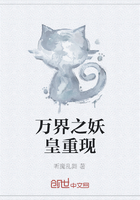Moreover, since a man of his type has generally some object beyond the mere acquiring of money, particularly after it has been acquired, he had his, to rise high, for he was very ambitious. His natural discernment set all his own failings before him in the clearest light; also their consequences. He knew that he was vulgar and brutal, and that as a result all persons of real gentility looked down upon him, however much they might seem to cringe before his money and power, yes, though they chanced to be but labouring men.
For instance, his wife had done so, which was one of the reasons why he hated her, as indeed had all her distinguished relatives, after they came to know him, although he lent them money. He knew that even if he became a peer, as he fully expected to do, it would be the same story; outward deference and lip service, but inward dislike and contempt. In short, there were limits which he could never hope to pass, and therefore so far as he was concerned, his ambitious thirst must remain unslaked.
But he had a daughter whom Nature, perhaps because of her mother's blood, had set in quite a different class. She had his ability, but she was gentle-born, which he was not, one who could mix with and be welcomed by the highest in the world, and this without the slightest question. If not beautiful, she was very distinguished; she had presence and what the French call "the air." Further, she would be one of the richest women in England. Considered from his point of view, therefore, it was but natural that he should desire her to make a brilliant marriage and found a great family, which he would thus have originated--at any rate, to some extent. Night and day he longed that this should come about, and it was the reason why the young Lord Mounteroy was visiting Hawk's Hall.
Mounteroy had met Isobel at a dinner-party in London the other day and admired her. He had told an old lady--a kind of society tout--who had repeated it to Sir John, that he wished to get married, and that Isobel Blake was the sort of girl he would like to marry. He was a clever man, also ambitious, one who had hopes of some day ruling the country, but to do this he needed behind him great and assured fortune in addition to his ancient but somewhat impoverished rank. In short, she suited his book, and he suited that of Sir John. Now, the thing to do was to bring it about that he should also suit Isobel's book. And just at the critical moment this accursed accident had happened. Oh!@@it was too much.
No wonder that Sir John was filled with righteous wrath and a stern determination to "make things hot" for the cause of the "accident" as, led to the attack by the active but dripping Mr. Knight whom he designated in his heart as that "little cur of a parson," much as an overfed and bloated bloodhound might be by some black and vicious mongrel, he tramped heavily towards the church. Indeed they made a queer contrast, this small, active but fierce-faced man in his sombre, shiny garments and dingy white tie, and the huge, ample-paunched baronet with his red, flat face, heavy lips and projecting but intelligent eyes, clothed in a new suit, wearing an enormous black pearl in his necktie and a diamond ring on his finger; the very ideal of Mammon in every detail of his person and of his carefully advertised opulence.
Isobel, whose humour had its sardonic side, and who was the first to catch sight of them when they reached the church, Mr. Knight tripping ahead, and Sir John hot with the exercise in the close, moist air, lumbering after him with his mouth open, compared them in her mind to a fierce little pilot fish conducting an overfed shark to some helpless prey which it had discovered battling with the waters of circumstance; that after all, was only another version of the mongrel and the bloodhound. Also she compared them to other things, even less complimentary.
Yet none of these, perhaps, was really adequate, either to the evil intentions or the repellent appearance of this pair as they advanced upon their wicked mission of jealousy and hate.














